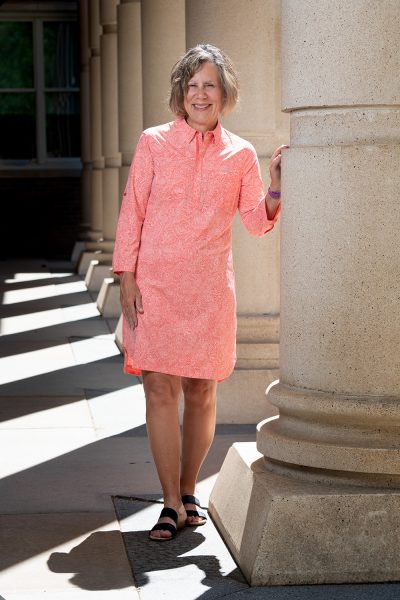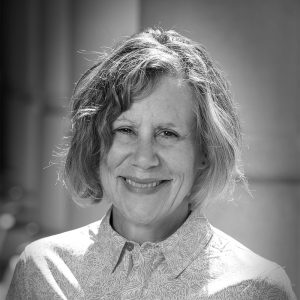CSU Professor Sue Doe assumes Faculty Council chair position
Sue Doe, professor in the Department of English, now serves as a representative voice for around 1,500 faculty members in her new role as faculty council chair at Colorado State University.
Doe began serving as chair July 1.
“Faculty council is a representative body reflecting perspectives of the faculty from every department and every college on campus,” Doe said.
She said she is proud to come from the College of Liberal Arts, which has not seen a chair of faculty council drawn from its ranks in several years.
“The whole point of faculty council is to represent the faculty perspective on matters related to university policy,” Doe said.
Shared Governance

She called the council a showing of CSU’s commitment to shared governance, and she said her biggest challenge as chair will be making sure that the faculty voice is a primary source among a wide range of opinions and perspectives on university policy.
Also crucial is working with others who are engaged in the governance of the university, from chairs to deans to central administrators.
The matters that the council tackles also span the gamut of CSU operations beyond curriculum, from parking, to new construction, to budget planning and beyond.
“The faculty council chair has a professional responsibility to meet with many people and offices on campus, in order to bring faculty into conversation with these groups.”
Each college gets its own number of faculty council representatives, depending on size. Just under 100 representatives serve in total. Debate, council consensus, and recommendations are guided by the faculty manual — a legally binding document. Meetings follow parliamentary procedure, with a parliamentary procedure expert present for each meeting.
Serving as chair of faculty council is a unique opportunity to represent the faculty and involves a separation from the typical, daily academic duties of being a faculty member,” Doe said. She added that will miss her office in “the Eddy Building” and seeing colleagues in the hallways
“But I hope to maintain involvement with many departmental efforts,” she said.
Experience
Being elected faculty council chair, she said, reflects the belief that the chair-elect is equipped — based on rigorous past experiences — to deal with broad variation in perspective.
Doe served for three years as faculty council vice-chair before being elected chair in March. In faculty council, the vice-chair also serves on the faculty council executive committee. This group examines proposals from standing committees of the faculty council and decides if subjects are ready to sustain debate on the floor of faculty council. Prior to being Vice Chair, Doe was a department representative and a member of the Committee on the Responsibilities and Standing of the Academic Faculty, and the Committee on Non-Tenure Track Faculty.
“Through experience on the faculty council and on committees, you get to know how shared governance works at CSU and what’s at stake if faculty are not represented,” Doe said.
Doe assumes the role of faculty council chair as she transitions out of a 5-year stint as director of composition in the English department — a rotating position. She also rotates out of her position as assistant chair of the English department. Professor Tobi Jacobi replaces her.
When asked her inspiration for accepting a nomination to run for chair, Doe said, “We’re in an environment that values shared governance. The university wants all of its stakeholders to be involved in the conversation around how we operate. Faculty council has been a powerful voice in those conversations.”
Faculty Council goals
Doe, in her role as faculty council chair, will strive to convey that faculty council:
- Asserts the central role and responsibility of faculty in the design and substance of curriculum and instruction.
- Originates and disseminates disciplinary subject matter.
- Advances research, artistry, and engagement.
- Addresses faculty working conditions as a factor affecting student learning conditions.
- Engages proactively through the instructional role in those factors that affect student life.
- Upholds the principle of academic freedom and defending the free exchange of ideas.
- Upholds the Faculty and Administrative Professional Manual, which is considered a legally binding document and a statement of the contractual relationship between the university as employer and both faculty and administrative professionals as employees.
- Develops and disseminates information about faculty and administrative professional rights and protections.
Sue Doe

Sue Doe teaches courses in Composition, Autoethnographic Theory and Method, Reading and Writing Connections, Research Methods, and GTA preparation for writing instruction. She does research in three distinct areas–academic labor and the faculty career, writing across the curriculum, and student-veteran transition in the post-9/11 era. Coauthor of the faculty development book Concepts and Choices: Meeting the Challenges in Higher Education, she has published articles in College English, The WAC Journal, Reflections, and Writing Program Administration among others, as well as in several book-length collections. Her recent collection on student-veterans in the Composition classroom, Generation Vet: Composition, Veterans, and The Post-911 University, co-authored with Professor Lisa Langstraat, was published by Utah State Press, an imprint of the University Press of Colorado, in 2014.